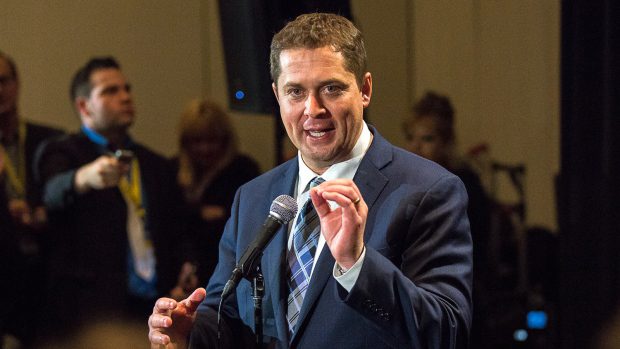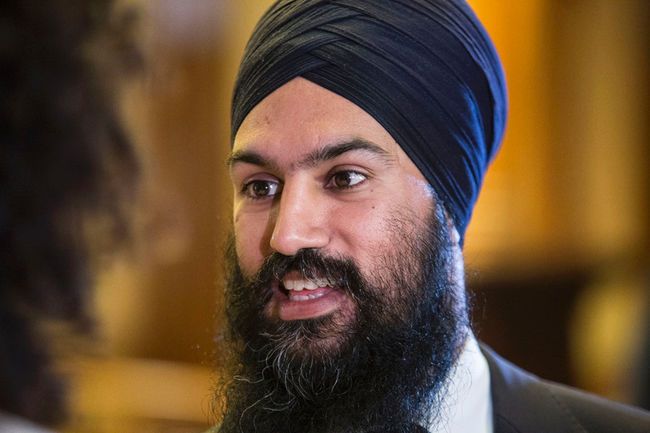Jagmeet Singh's appointment as Canada's first-ever nonwhite, non-Christian prime ministerial candidate provoked almost instantaneous anxiety over what rules of propriety should govern conversation about him. On social media, there was much shaming of a CBC headline referring to him as a "Sikh lawyer" (was Justin Trudeau ever described as a "Catholic teacher" some sneered), while others took umbrage at a Margaret Wente column that used the adjective "exotic." As Mr. Singh experiences the hike in attention (and criticism) that comes with being a national party leader, expect the language policing and vicarious offense-taking to increase.
Political correctness has made a dramatic resurgence in recent years, and is now one of the defining issues shaping our partisan debate. This presents obvious challenges for the Canadian left, who must struggle to remain literate in ever-changing PC fashion to prove their mettle as defenders of the victimized, but it's no cakewalk for the right either, who must find a palatable style of resistance to fads that frequently manifest as a crusade against freedom.
Many in the Tory war room would just as well prefer not. Conventional wisdom has long declared that Conservatives are unelectable when political debate departs from two narrow topics — the economy and Liberal scandals — with divisive "social issues" seen as the most poisonous distraction of all. Recent high-profile atonements, such as removing support for the traditional definition of marriage from the Conservative party platform, getting Rona Ambrose to march in the Toronto Pride parade, the deification of Jason Kenney as the master of "ethnic outreach," and Andrew Scheer's promise (now basically an ex officio demand of holding the CPC leadership) to not "re-open" the abortion debate represent explicit efforts to bury traditional stereotypes of the party as in hock to reactionary hicks.
Yet social issues — which is to say, issues that force politicians to make moral judgements about some cultural trend — clearly aren't going away, partially because social division isn't, partially because parties of the left understand stoking social anxiety to be a useful tool for discombobulating their anxious opponents on the right.
The Liberals, having successfully cowed both the Conservative leadership and their own caucus into pro-abortion submission, moved to quell the last remaining holdouts of parliamentary opposition last week, when Liberal MPs on the House Status of Women Committee flamboyantly refused to serve under the chairmanship of Tory MP Rachael Harder, who is pro-life. It was an explicit effort to destroy the delicate compromise Andrew Scheer had tried to build — wherein the pro-life faction of his party is given meaningless sinecures in exchange for zero influence — by transforming the mere existence of any pro-life politicians anywhere into a monstrous offense against women.
A similar campaign is being simultaneously waged against Conservative senator Lynn Beyak, who, despite having been stripped of all her committee positions, continues to share heretical opinions on aboriginal issues, including that residential schools were not uniformly evil, and that the disillusion of Indian reserves would improve Canadian society. As with abortion, the Liberals seek to make expressing nuance of any sort on the First Nations file an unambiguous sin deserving maximum reprimand, meaning even a powerless non-entity like Beyak must be made a national enemy simply by virtue of existing.
Then there's old Gerry Ritz, who passively used the nickname "Climate Barbie" in a tweet referencing Environment Minister Catherine McKenna. The Minister's Liberal colleagues quickly branded this sexist beyond words, though their ability to call for his head was somewhat handicapped by the fact that he'd already resigned a few weeks prior.
Such theatrical episodes will strike many Canadians as silly and hysterical, yet they accurately represent the shape and form of "social issues" today, which have moved beyond substantial matters like marriage and abortion, and towards policing ever-narrowing boundaries of permissible opinion. By exaggerating the consequence of mildly contrary thoughts or slightly distasteful comments, the left embraces a social agenda whose main consequence is to silence and stifle honest talk about important issues.
Conservative voters expect their party to mount a resistance to all this. If there's an undeniable reserve of energy on the right these days, it's against the ever-widening net of PC authoritarianism. Yet traditional Tory fears of being branded the party of bigots remains a powerful force on the other end.
Reflecting his status as a true party centrist, Andrew Scheer's present course appears to be a sort of middle of-the-road, tolerate-but-not-support strategy, wherein he refuses to endorse the un-PC opinions of caucus members like Harder, Beyak or Ritz, but refuses to purge them from the party altogether — as is easy to imagine many of his leadership opponents doing.
Half efforts like these are often unsustainable, since they tend to imply a weakness of conviction, which opponents can easily exploit. If 2019 is an election in which Singh and Trudeau fall over each other in an arms race of offense and outrage — about women, about aboriginals, about the LGBT rainbow, etc. — then a timid Tory leader will find himself outshouted by the left and uninspiring to the right. If Scheer can find an authentic, consistent, contrary tone, however, a voice of opposition to the obvious excesses of modern PC culture that's forceful, principled, and articulate then we'll have an authentic race of ideas appropriate for this moment.
Photo Credit: CBC News
Written by J.J. McCullough








